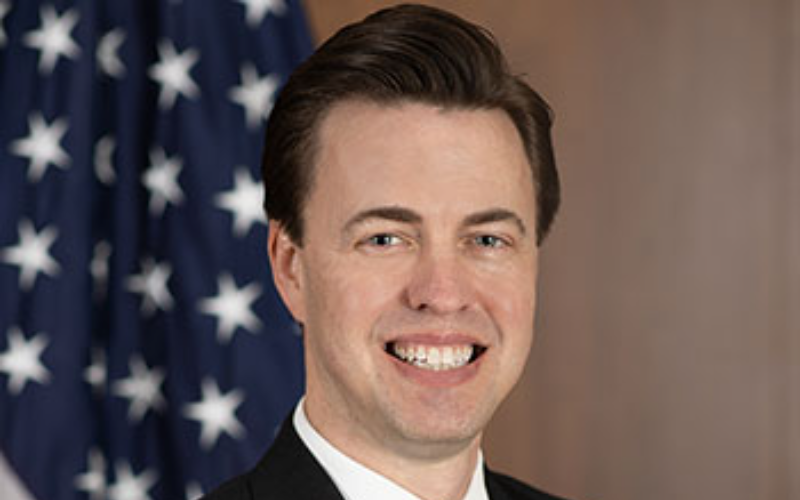White House Announces Nomination of Jonathan McKernan for CFPB Director
Posted by John Trull on February 13, 2025

Earlier this week, the White House announced the nomination of Jonathan McKernan as the next Director of the Consumer Financial Protection Bureau (CFPB). McKernan, a former Board Member of the Federal Deposit Insurance Corporation (FDIC), will bring extensive experience in financial regulation to the role should he be confirmed.
Recent Leadership Transitions at the CFPB
The CFPB has experienced rapid leadership changes. On February 1st, President Trump removed Director Rohit Chopra, appointing Treasury Secretary Scott Bessent as Acting Director. A week later, Russell Vought, recently confirmed Director of the Office of Management and Budget (OMB), assumed the role of Acting Director.
Under the interim leadership of Bessent and Vought, CFPB operations are undergoing significant changes including:
- Cessation of Communications: Employees were instructed to halt all work activities, leading to a significant reduction in both internal and external communications.
- Suspension of Enforcement Actions and Lawsuits: Ongoing investigations and enforcement actions were paused, affecting cases against major financial entities.
- Funding Halt: The administration decided not to request additional funds from the Federal Reserve, aiming to reduce the agency’s operational capacity in the foreseeable future.
- Termination of Employees: On Tuesday the CFPB terminated roughly 70 probationary employees and enforcement division attorneys and facilitated the resignation of its enforcement and supervision chiefs Eric Halperin and Lorelei Salas.
For now, Vought will remain Acting Director pending McKernan’s confirmation.
About Jonathan McKernan
Throughout his career, McKernan has been recognized for his expertise in financial regulation and policy development. He resigned from his position on the FDIC Board just one day before the announcement of his nomination to become the Director of the CFPB. If confirmed, he would return to the FDIC Board, where the CFPB Director holds an ex officio seat.
At the FDIC, McKernan co-chaired a Special Review Committee overseeing an independent review of allegations of misconduct and issues related to workplace culture. He also expressed concerns about the influence of large asset managers in the banking sector, suggesting a need to revisit regulatory perspectives on their roles.
Additionally, McKernan’s roles over the last decade include: Counsel to the Senate Banking Committee where he advised Ranking Member Pat Toomey, Senior Counsel at the Federal Housing Finance Agency (FHFA), Senior Policy Advisor at the U.S. Department of the Treasury, and Senior Financial Policy Advisor to Senator Bob Corker.
The History and Authority of the CFPB
When the CFPB was created as part of the Dodd-Frank Wall Street Reform Act, Congress placed the bureau outside of the normal appropriations process in an effort to insulate them from political leaderships swings. Instead of seeking and receiving a Congressional budget appropriation to fund its activities, the CFPB Director determines how much the agency will need to operate for the fiscal year, and requests that amount from the Federal Reserve, which is obligated to provide it.
The President can act through the CFPB Director and provide substantial authority to change the tone and direction of regulatory activity within the CFPB. But the President, nor the CFPB Director, can unilaterally wield their authority to dismantle the agency or to direct it not to carry out its statutorily mandated duties. Those actions would require Congress to pass legislation.
If the CFPB moves toward significantly limiting or dismantling its own functions, some in Congress may view these actions as an overreach of executive authority, which could lead to legislative pushback. Ultimately, legal challenges would be likely, and the courts could step in to assess the agency’s obligations under existing law. Section 1011 of Dodd Frank establishes the CFPB as “an independent bureau” within the Federal Reserve System.
It is important to note that unless Congress passes legislation to change the structure or authority of the CFPB, existing regulations governing financial institutions remain in effect. However, Congress has begun setting forth a number of proposals to roll back regulations including a highly supported resolution aimed at overturning the final rule limiting overdraft fees. This represents a significant step towards shifting the priorities of the agency and appears to be part of a broader effort by legislators to assert greater control over the Bureau’s authority and possibly its overall structure.
We will continue to monitor these evolvements.
Conclusion
We understand that recent developments at the CFPB are causing curiosity and confusion in the credit union community. Please be assured that we are closely monitoring the situation and are committed to keeping you informed. Our dedication to supporting credit unions remains steadfast, and we will continue to provide updates as more information becomes available.
Posted in Advocacy on the Move, Federal Advocacy.


















